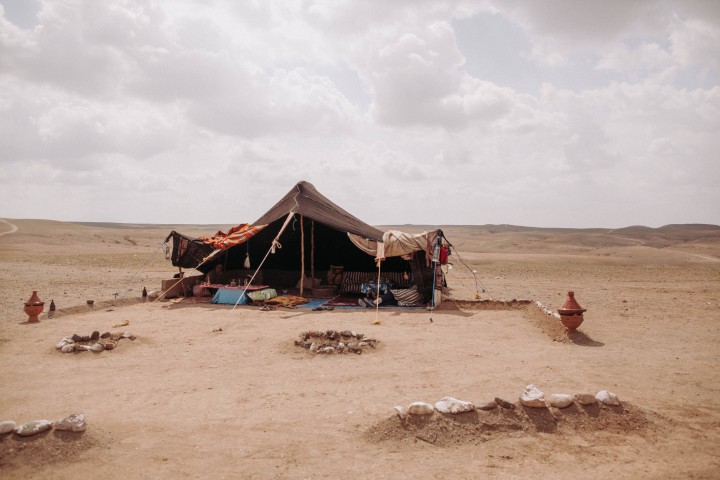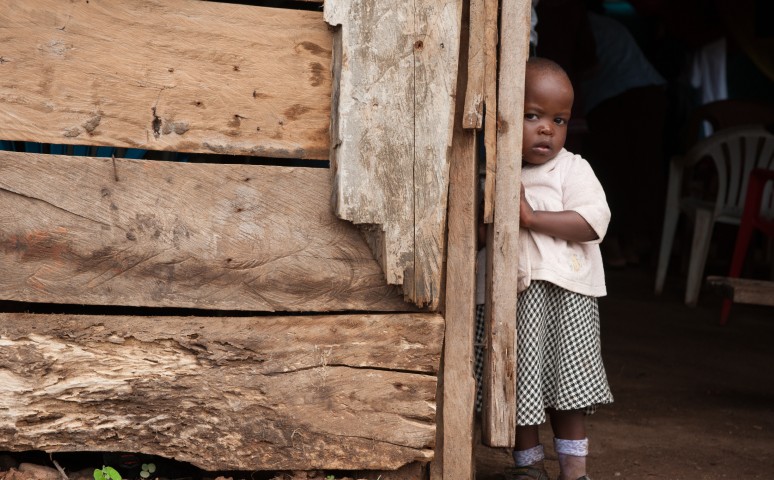
The meaning and limitations of Hospitality are a subject for an ongoing discussion, from parshat Vayera to contemporary philosophy. A brief look and the central insights of this discussion, and its implications on the concept of the home.
Noam Samet
c
Emmanuel Levinas and Jacques Derrida, two prominent 20th-century Jewish philosophers, explored in depth the concept of hospitality, exposing some of its complexity. Here I will present some of their insights in relation to parshat Vayera, in which the Torah deals with the concept of hospitality through the stories of Avraham and Lot. As we shall see, in our time these insights became relevant also in the international field.
Looking up, he saw three men standing near him. As soon as he saw them, he ran from the entrance of the tent to greet them and, bowing to the ground (Bereshit 18:2).
The demand posed by the wayfarer knows no bounds: he wants to be welcomed comfortably and fully, to feel at home; paradoxically, this very demand undermines the home and threatens its stability. How can a home contain the Other? The foreignness of the wayfarer, his dirty feet, his hunger – all this disturbs the tranquillity of the home. The host is required to be accommodating and accepting, to open his home, to go beyond the distant involvement of a neighbour.
The ability to be truly hospitable and open to the Other depends on the ability of the home to be flexible and not rigid in its stance. The walls of the home need to be tent flaps, open in all four directions. The host needs to yield his position, to run from the tent door towards the wayfarer. The possibility of truly encountering the Other and making a place for him within me, requires a relinquishing of the stubborn ego, a relaxing of the firm stance conveying presence, and an acceptance of the Other in a way that puts him before myself.
And yet, hospitality does not break up the home. On the contrary – it is a necessary precondition for a profound dwelling place.
The episode recorded at the beginning of parshat Vayera binds hospitality to Sara’s pregnancy. The vitality and continuity of the home are the result of hospitality, with its power to ease away the home’s obstacles and barriers and turn it into a real dwelling. The wayfarer’s outsider perspective, his breaking through the walls, becomes a generating and arousing movement, exposing something new in the home. The host becomes, as it were, a newcomer in his own home, together with the wayfarer. It is only with the wayfarer’s arrival that the dwelling becomes a home, since the acceptance and welcoming of him reveal the infinity of the home itself. Fecundity and the generative capacity depend on this yielding, on the relaxed stance of ‘at homeness’.
d
This idea has great significance for inter-personal relationships, and in our times we also see it reflected more broadly in international affairs. The attitude towards the alien Other, the possibility of welcoming someone from the outside without breaking apart the home – these are universal issues. Is this Levinasian movement possible? Can there be full, unconditional, unlimited acceptance of the Other?
Rashi (Bereshit 18:4) teaches us about the boundaries of hospitality:
’bathe your feet [and recline under the tree]’ – Since he believes that they are Arabs who worship the dust of their feet, he took care not to bring idolatry into his home. But Lot, who was not careful [in this regard], mentioned staying over before washing, as it is written (Bereshit 19:2) ‘and stay overnight, and wash your feet’.
Quoting The midrash, Rashi emphasizes the boundaries of the home, and is sensitive to the householder’s principles and values: ‘he took care not to bring idolatry into his home.’ In the background there stands the covenant of this home: ‘For I have singled him out, that he may instruct his children and his posterity to keep the way of the LORD by doing what is just and right, in order that the LORD may bring about for Abraham what He has promised him.’ A home has its path and follows its tradition; these are no less vital to its continuity and fertility than is hospitality.
How can these two ideas be reconciled? How can wayfarers be welcomed without violating the covenant of the home? Today these questions are perhaps more compelling than ever before.

Avraham’s hospitality ultimately leads us to Jerusalem, which appears explicitly at the end of parshat Vayera: ‘ And Abraham named that site Adonai-yireh, whence the present saying, On the mount of the LORD there is vision (yeraeh)’ (Bereshit 22: 14). The prophet Yishayahu, too, describes God’s mountain as a place of innate and expansive hospitality: ‘In the days to come, The Mount of the LORD’s House Shall stand firm above the mountains And tower above the hills; And all the nations Shall gaze on it with joy’ (Yishayahu 2:2). The pilgrimage to see and be seen before God, the invitation to visit His home, is extended to all the nations that flow to Mount of the LORD’s House’. The utopian Jerusalem is depicted as a point of encounter and harmony, to which all the nations gather in order to learn God’s Torah: ‘That He may instruct us in His ways, And that we may walk in His paths. For instruction shall come forth from Zion, The word of the LORD from Jerusalem’ (Yishayahu 2:3).
At the beginning of Sefer Yishayahu, this prophet of Jerusalem contrasts his city with Sodom, which also features in parshat Vayera. He counters the wickedness of those he refers to as the ‘chieftains of Sodom’ and ‘folk of Gomorrah’, who frequented the Temple at the time, with a future vision of justice and judgment for the city: ‘After that you shall be called City of Righteousness, Faithful City’ (Yishayahu 1:26). The justice and judgment that are the family tradition of Avraham’s progeny will extend to Jerusalem and become part of its character as a city of hospitality. The city of God is a dwelling place that is able to be an open tent without losing its ‘homeness’; it is a place where people teach Torah but are always ready and prepared to welcome the wayfarer.




